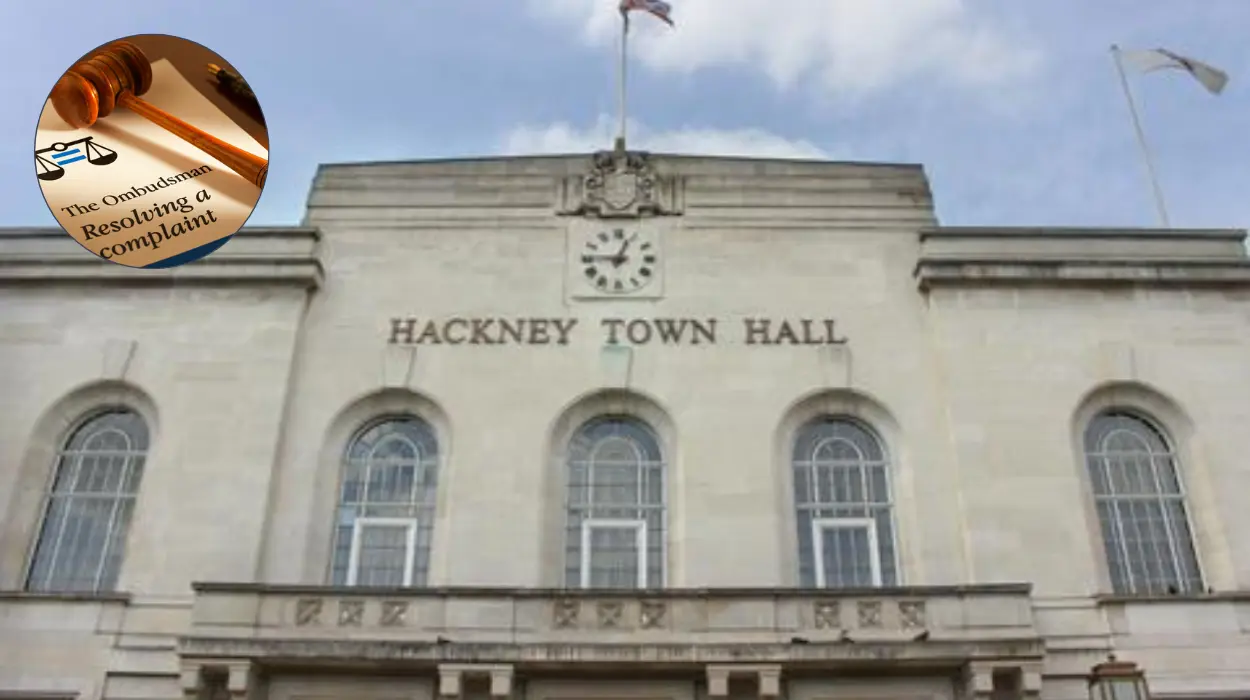Key Points:
- A special investigation by the Housing Ombudsman revealed failures in 79% of complaints involving Hackney Council housing services.
- Richard Blakeway, Housing Ombudsman, warned the council against falling into a “positivity prism” that misrepresents progress.
- One resident was left without heating and hot water for seven weeks, another without electricity using candles for light, and a third experienced flooding after their case was wrongly marked complete.
- The Ombudsman found systemic issues in risk assessment, support for vulnerable residents, and information management.
- Guy Nicholson, Hackney’s Deputy Mayor, apologised and acknowledged the failings, while reiterating the council’s commitment to improvement.
- Investigation reviewed 49 complaints, involved a site visit in late 2024, and revealed staff often worked without structure, systems, or adequate data.
- Hackney Council cited Covid-19, high inner-city demand, ageing housing stock, limited budgets, and a 2020 cyber-attack as major constraints.
- Staff reported data issues predated the cyber-attack, contradicting leadership claims.
- The Ombudsman praised individual housing officers, but said positive outcomes happened despite weak systems, not because of them.
- Report by Lex Funk for Housing Today.
A damning report from the Housing Ombudsman has warned Hackney Council not to overstate the progress it claims to have made in improving housing services, following an investigation uncovering widespread maladministration, failure to support vulnerable tenants, and serious service shortcomings.
What did the Housing Ombudsman’s investigation find?
As reported by Lex Funk of Housing Today, the Housing Ombudsman, Richard Blakeway, said in the May 2025 report:
“The pressure for improvement has sometimes created a ‘positivity prism’ which has overstated changes compared to the reality experienced by residents. This could go some way to explain the root cause of the landlord’s problems.”
The special investigation revealed poor practice in 79% of the 49 complaints reviewed. Failures ranged from missed repairs to inadequate support for vulnerable tenants. Examples cited include:
- An elderly resident without heating or hot water for seven weeks.
- A tenant using candles after being left without electricity.
- A resident whose home was flooded even though the case had been marked as resolved.
The Ombudsman highlighted missed opportunities to understand root causes of these failures and called out inadequate risk assessment, ineffective prioritisation, and weak knowledge and information systems.
How did Hackney Council respond?
According to Housing Today, Guy Nicholson, Deputy Mayor and Cabinet Member for Housing Management and Regeneration, responded:
“On behalf of the council I apologise for this shortfall and reassure both tenants and the Housing Ombudsman that Hackney Council is fully committed to improving the service it provides as a landlord to the homes it has responsibility for.”
Nicholson also noted that while the Ombudsman was looking at older cases, the council had already begun implementing its own internally led service improvement plan. He said:
“It is heartening to note that the Housing Ombudsman recognises the commitment of housing officers… and the introduction of a better approach to support residents with additional needs.”
What challenges did Hackney Council face?
Housing Today’s report quotes the Ombudsman acknowledging Hackney’s difficult operating environment, including:
- The Covid-19 pandemic.
- Intense pressure from inner-city demand.
- A large number of ageing properties.
- Insufficient budgets to meet need.
- A cyber-attack in 2020, often cited by senior managers as a key obstacle.
However, the report notes that staff across departments indicated data and systems issues existed before the cyber-attack, casting doubt on the leadership’s narrative.
What did the Ombudsman say about council structure and staff?
Blakeway stressed that frontline staff often worked without sufficient structure, procedures, or support systems:
“We met officers who were often trying to deliver services with little structure, procedure, systems or data to support their work. From the evidence we have heard and seen, the good work achieved was happening despite the landlord’s structures and systems rather than because of them.”
The report urges Hackney Council to engage in honest self-reflection, ensure real learning from complaints, and focus on genuine service improvements rather than reputational management.
What are the long-term implications for Hackney Council?
The report adds to the growing scrutiny of Hackney Council’s housing services, which have faced repeated criticism and administrative failures in recent years. Alongside service-level challenges, the council must navigate:
- A £67 million savings requirement between 2025–2028.
- An ongoing budget gap of over £50 million.
- A recent 4.99% Council Tax rise to maintain essential services.
While Hackney has shown strength in some sectors—such as children’s services, which Ofsted upgraded to “Good” in 2024—the housing failures risk undermining trust and require urgent structural reform.



